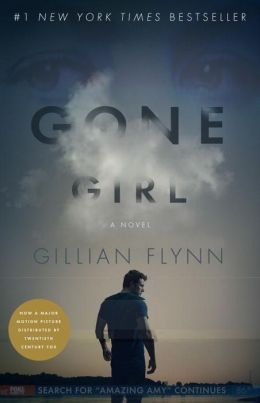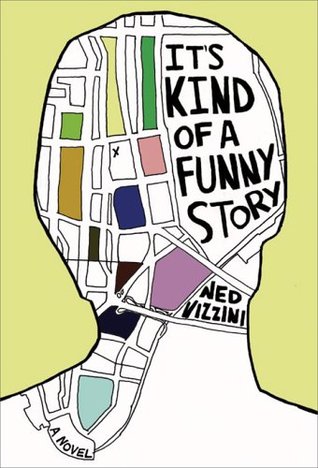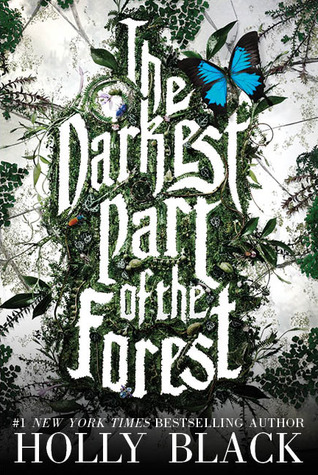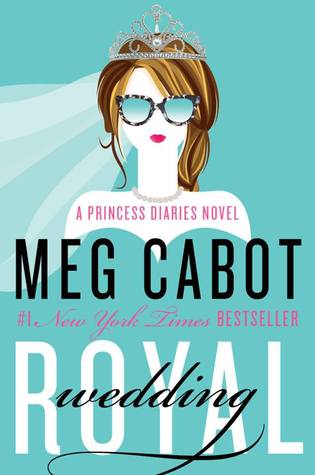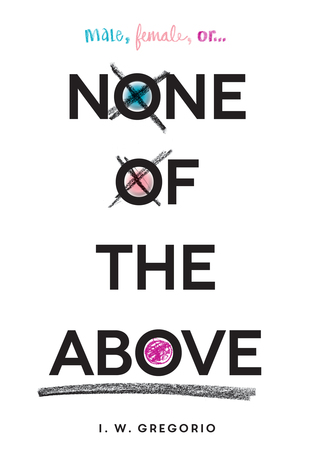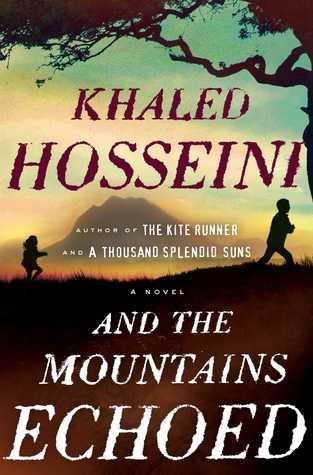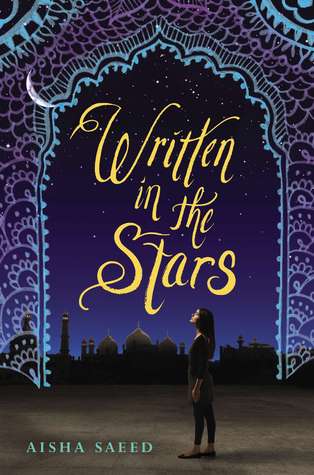Happy Pride! This is gonna be a long post so you might want to just scroll down past the text and pretty pictures to the
REVIEW part! What follows this sentence is a lot of stuff related to the book, and indeed has some thoughts about the book, but if you're just looking for a quick review, scroll down. Otherwise enjoy my incredibly dull syntax and poor humor:
It has been an incredible week for LGBTQ+ people across the world: Mexico, and then shortly after, the U.S. both nationally recognized and legalized same-sex marriages, granting much needed marital rights (like the right to inherit a partner's estate or easily adopt their children) to those who needed them. Even more striking perhaps was Ireland's
decision to remove the stifling requirements that trans people (over 18, unless a doctor's statement companies the request) used to have to meet to legally change their sex or gender identification on their legal documents (passport, license, etc). This comes barely a month after Ireland's same-sex marriage referendum.
This is much-needed good news for some LGBTQ+ people. However, there is still work to be done. And that brings me to the novel currently resting in my Top Ten books, and one of the most important books I've read this year. I.W. Gregario's
None of the Above, a story about Kristin, a varsity track & field nut with an almost cookie-cutter life. Until, of course, she tries to have sex with her boyfriend, also a varsity track and field nut (seriously there is a lot of running in this book) the night after homecoming, and as our horrible Sex-Ed teachers warned us: that's when it all went to hell.
Kristin refers herself to a gynecologist and quickly learns she has Complete
Androgen Insensitivity Syndrome (CAIS but referred to as AIS in the novel for simplification purposes). This means her chromosomal sex is "Xy." This is commonly referred to as "male, genetically male, natally male" or and so on, but basically she is physiologically between sexes, though most with CAIS are identified as physiologically female and generally choose to identify this way post-diagnosis. Kristin's body cannot fully use the testosterone and other androgens she is producing, and therefore, her genital makeup was never affected by any androgen hormone, and so while she has testes, they are not descended and sit next to her vagina, which is not fully developed.
Now, that all may sound incredibly complex, and it really, really is. Gender and sexuality are two massive spectrums we are often reduced and taught as sides of a coin. I believe that's why Gregario opted to go with something as cut-and-dry as CAIS, because most people in the U.S. have never had to work through the complex way biology and socialization actually intertwine. I patiently await the day we have novels representing far more complex cases of intersex persons, but considering it took us this long to grant marital benefits to same-sex couples, I believe the decision to have what Gregario refers to as one of the most common kinds of intersex, represented.
While my book-loving companions are usually very progressive, I was still hesitant and pessimistic concerning the response to this novel. But go on
goodreads or
Amazon . . . over four stars on both platforms (and on every platform I've checked). The response has pretty much been this:
 |
| Seriously, Karen. |
What I mean is that a lot of people who previously did not know what intersex really entailed or where it fit, really took to Kristin's journey and, though I've seen some well-intentioned but still a little in bad taste comments, I've witnessed an overwhelmingly positive response.
I was willing, right then and there, just because of this kind of response, to give this book five of the biggest stars I've ever given and just be done with the whole thing.
BUT I SHOULD PROBABLY JUST REVIEW IT: (Warning: very weak spoilers ahead. Also note: I actually met with the author during BEA and asked her a couple of questions. I've paraphrased them/integrated them below.)
Writing
The writing itself is phenomenal. Gregario's words leap of the page, syrupy sweet:
"Dawn is my favorite time of day. There's something sacred about being awake when the rest of the world is sleeping, when the sky is just turning toward the light, and you can still hear the sounds of night before the engines and conversations of the day drown them out. When I start on an early-morning run, there's a clarity to the world, a sense that it belongs to me." (Gregario, 1)
deftly hilarious:
"We'd literally been friends since before we were born, when our mothers bonded in postnatal yoga." (6)
tremendously sharp:
"What I really wanted to know was how I was going to tell my boyfriend that I had testicles." (41)
and finally downright
cruel:
"He leaned in, and I allowed myself to hope that he was going to listen. But instead he just whispered, 'I thought I loved you, you fucking man-whore. And you've been lying to me. I have nothing to say to you. Ever. Again.' . . . The bell rang. The ground went silent. And I began to process how deeply I had been betrayed " (114)
I mean, come on. The first word of the book is
dawn, as in, in between day and night. Kristin feels the world
belongs to her.
There's so much symbolic meaning in the opening paragraph, in just the first
word it was either one of the most clever openings or just accidental good writing. I can definitely understand why an author would have their protag feel the world belongs to them: to totally and violently take it away from them. That seems quite in line with what the rest of the opening chapters are like: setting Kristin up on a high pedestal to be knocked down. But I can't seem to get over how the first word is dawn. Day and night are such a powerful symbol for sex, especially considering that day and night are a spectrum, with many different places in between. (
I asked Gregario about this. It seems she might be on the accident side,
but it doesn't lessen the genius.)
Anyway. What stands out throughout the book is how fluid and effortless Gregario shifts from the above kinds of language. As many reviewers have commented already, Gregario gives an incredible sense of what it must feel like to be in Kristin's position, by drawing the reader in so deeply to Kristin's mind via the easily accessible, and very natural language used. We are meant to feel every high as if it is ours, and every low as if it is ours. While it is a lot easier to grasp dancing, running, or pancakes than a diagnosis that sends your world spinning, Gregario never lets us go without feeling connected to Kristin. This is especially true during the parts of the book where Kristin was being bullied or otherwise persecuted And this is pretty much
half of the book, so . . . fantastic job.
As a surgeon, it might have been tempting to info-dump the AIS information all at once, but Gregario is as deft with the pen as she is with the scalpel, opting for a phenomenal balance of just enough information for Kristin and the reader to understand, while focusing far more on how Kristin responds, drawing me to my second point:
Characters
I found myself wanting to give Kristin a good hug and slap at the same time. Make no mistake, she is less cruel to herself than her bullies but still painfully so. She often refers to herself by the derogatory term "hermaphrodite," and in the beginning feels so disgusted at her self and her body that she can't reconcile with the idea of "identifying" as female. As if it were any less authentic than someone else's identification.
I asked Gregario about this. She said that one of the most difficult parts of writing the book was actually choosing the harsh ways in which Kristin responds, such as using the word "hermaphrodite" considering its negative connotations, and constantly considering the decision to remove her testes (won't spoil if she does or not). In the end, Gregario had to settle with what worked for Kristin.

But it is precisely because of her reactions that the reader gets a sense of how truly terrifying her life has just become. Kristin is a powerful character because she's quite realistic: she balances her athletic life with her school life, has dealt with a major family death, has snark-tastic best friends. She simply makes sense. This is a person I could potentially know, as YA standard as her life might seem. Best of all for a YA character, we get to experience her problematic side a lot more than other characters. Whereas much of the stress in YA books come from external, often magical sources, Kristin's is rooted at least half in self-loathing and the stress that comes with learning something about your body that changes your view of the world. Because of this, Kristin is basically far more realistic than most teenagers in YA books: she's temperamental, aggressive, has a mouth like a wildfire, and is generally falling apart in slow motion.
Actually, Kristin behaves outrageously, is often in poor form, finds herself insulting trans people and not wanting to care about definitions of heteronormativity. I almost wrote her off as childish, but I realized that, at that age, with that big of a bomb being dropped on her and then that bomb being dropped on the school and her entire life and no immediate support system . . . it begins to take shape why Kristin acts childish: it's because, for the most part, she is a person who is completely defeated and must build an image back of herself. Should I blame her for wanting that image to look like it did before she learned the world was not grayscale? Her reconstruction isn't perfect, but it comes with the promise of something better, at least.
All of the other characters are basically this:
It's high school, so by some YA Creed, we need all of it. We need Vee, the beautiful snarky monster of a best friend with a heart of gold. We need Faith . . . I mean, if you can't guess by her name which one she is, then I can't help you. Vee is hilarious, Faith is there for Kristin, there's loads of high-school drama. We need the secondary group of friends, and the other possible love interests, the firm dad who can only cook one thing, and generally, suburban middle-class white life.
Gregario spoke to me about this, as well. I could tell that a great many factors pushed the decision to have the setting be what it is. One of the things she had to decide was whether Kristin was going to be white. Considering that so many portrayals of queer characters are often very normative in other senses (are white, for instance) this seems a genuine struggle. In the end, it boiled down to making the book as much about Kristin and her diagnosis as possible. While I am disappointed that intersectionality had to be sacrificed, I genuinely do understand having to pay tribute to what people will read and how easily it will get to them. And the truth is that a novel about a cis-gendered white girl who's middle class is going to reach a wider audience in the United States. Am I sad that that is considered what is normal? Sure, but as far as I understand it, this is one of the first books about intersex (though Gregario points to a couple of others in her closing remarks) out there, so it's critical that readers are able to recognize tropes and narrative cues without explanation or exposition, because the subject matter needs to be as simple and forthright as possible. Am I waiting for the next intersex book to have people of color? That would be a step, yes. Let's write it, people.
To be fair to Gregario, she does include a lesbian intersex woman that Kristin meets. But judging by a couple of confused reactions, especially Kristin's reaction in the book, I can understand the need to keep the book normative.
Also, I'm extremely miffed that the book ends with [SPOILER ALERT] the male secondary love interest basically saving Kristin, both physically and emotionally? Was this necessary? I'm happy for Kristin but the love interest in question had to go out of his way to be with her and isn't just accepting her enough? I want Kristin to be happy, and if being in a relationship makes her happy, then fine, but seriously? The one character who accepts her just happens to be in love with her as well? [SPOILER ALERT]
We don't really need to read another story about it, but it presents us with familiar character tropes and does a lot of work to try shed light on how they respond to certain events, which brings me to:
Plot/Structure
Okay. Arguably, this is where the novel isn't conventionally incredible. Don't get me wrong, Gregario expertly plans where to execute pitfall moments where Krisin realizes how another part of her life is going to suffer, like when she learns her track scholarship might be revoked because she's not, as she thinks the school will think, female.
However, because it runs like the white suburban high school drama, it is fairly predictable. There's maybe one or two twists that are pleasant surprises but otherwise, the plot is not what you'll remember the book for.
Which is why I won't penalize the book for it. With a book like this, an over-complicated plot would have taken time away from Kristin's struggle. And I honestly don't see anywhere else the plot could have gone, most aspects of Kristin's life were covered, and the book is about the initial journey of learning one is intersex, and the book covers Kristin's initial journey very well. The plot was engaging enough where Kristin was always on her toes, always thinking through something, so it was just enough.
Closing thoughts:
Okay but seriously that one moment on page 53-4 when the kids in the English class are all talking about Shakespeare being a subversive commentator on racism and sexism was beautiful. So many truthbombs being dropped so frequently.
Also oh my god. This quote:
"Love isn't a choice. You fall for the person, not their chromosomes."
SO I MADE THIS FOR YOU (using an image from oglyzone's tumblr)
That is so beautiful. I really hope that the fact that this is the most frequently quoted passage from this novel on sites like Goodreads that this will hold true for those people, and eventually, the rest of the world.
One of the final things I discussed with Gregario was this question: have we come to the watershed point? Are queer books of this nature enough to spurn public opinion into action? She mentioned that there seemed to be a quota for diverse books and only so few get out a year. But on the other hand, the U.S. just nationally legalized same-sex marriage, right? Are we doing enough to make the world a better place? Gregario responded, of course, in the only way a writer who has spent hours writing, rewriting, and editing mistakes can: she said. "It's getting there, but we're not there yet." There's a lot of work to do, and this book does enough of it that it should be required reading.
- Marlon
Amrutha's Review of None of the Above
Rating: 4 out of 5 Stars
First off, if Marlon didn't emphasize this enough YAY FOR DIVERSE BOOKS AND I.W. GREGORIO. I'm so happy that we get to review this book in a week that has been so happy for the LGBTQIA+ community, and that I got to revel in their joy right alongside them. I cannot stress the importance of equality and I'd also like to take this moment to recognize the role of books and diverse novels in my life. I grew up in an extremely conservative town in Kansas, and outside of what my parents told me or what little TV I watched, my entire opinion on the LGBTQ+ community until age 9 or 10 was formed off of diverse books (a lot of credit to David Leviathan and Maureen Johnson). Books shed light on people of different backgrounds and intersectional diversity and situations that I had never experienced and probably will never experience. I'm forever grateful to diverse books for teaching me when my access to knowledge was limited, and for providing insight on so many communities. I am so glad that None of The Above exists, because it will serve to educate people in the same way that it has educated me.
IMPORTANT NOTE: This book is not great because it is a diverse book (well it is), but outside of being diverse it is well written, and there is incredible character development. Nothing too crazy happens in the plot, but honestly, I'm not sure it matters, because I cared more about the writing than anything else here.
Kristin is intersex -- there is a link provided in Marlon's review above and I really encourage you to read it and learn more about AIS and other cases. I am not nearly as educated on this topic as Marlon or the internet, but I do read up and try to be informed (for myself, and because the more you know, the more intuitively nonjudgemental you are (emphasis: not that there is anything to judge because someone is from a background different from your own, but it is human nature to judge things you don't know anything about or look different than what you are used to)).
As Marlon touched on above: the plot is pretty cut and dry and you could pretty much predict it from the start (really the reason for the 4 star rating instead of 5). White girl (Marlon points this out above too) finds out she is intersex, people find out, she gets a lot of hate, she tries to accept herself, the whole nine yards. On its own, the plot is okay. Nothing too WOW, but then, the writing gets thrown in the mix.
While I genuinely enjoyed the writing of the novel of the whole time, even the kind of annoying (but what I found to be realistic to my interpretation of events) voice of Kristin, what I enjoyed most was the accuracy in the voices of cruelty and kindness that approached our protagonist. The voices of cruelty actually shook me while reading them, because although I could never imagine someone saying anything along those lines to me, it is the reality of many people's lives, and I thought the writing really did that reality justice and allowed me some insight into it. While Kristin annoyed me a lot in the beginning, I realize that I might've reacted the same way in that situation -- especially because the only person she has to rely on is her father (which is nice, but not what she really needed). I think her voice really held true to her character throughout the novel, and that the slurs she used towards the trans and intersex communities were needed for her character development.
Other than the just okay plot I feel like I should include that I wasn't really a fan of the ending, it was okay and fairly predictable but I was also kind of just like COME ON, WHY. See Marlon's spoilers above to understand my overly italicized feelings.
All in all, I really loved the book, and although I feel like a little more could've been with the plot (mostly the ending) and that more intersectional diversity could have been included, the brilliance of the book is in the writing.
Do you think chromosomes, or people themselves, are more important in determining love?
Let us know in the comments!






